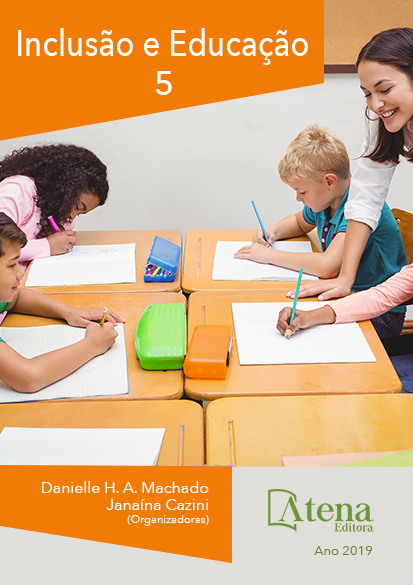
Conselho de Classe Participativo como exercício de subjetividade
Relato de Experiência sobre os
Conselhos de Classe Participativos realizados
com as turmas de Ensino Fundamental I, ao
final de cada trimestre letivo, com o objetivo
de possibilitar espaços de reflexão, de
autoconhecimento e, desta forma, favorecer
o relacionamento interpessoal e também o
relacionamento com os objetos de conhecimento
e com as aprendizagens. Um dos princípios que
norteia a elaboração das propostas que
serão apresentadas aos alunos no Conselho
Participativo é a inclusão, visando o respeito
às diferenças e às singularidades de cada
membro do grupo, relembrando que eles estão
inseridos em um grupo maior. As diferenças de
pontos de vista são vistas como partilhas que
favorecem o diálogo. Os alunos exercitam trocas
significativas através da palavra, desenhos,
registros, procurando fazer reflexões sobre as
relações com o meio em que estão inseridos, no
que diz respeito ao universo da sala de aula e as
relações que ali se estabelecem. Assim, estão
produzindo novas formas de subjetivação. Esta
é uma estratégia que vem trazendo efeitos,
valorizando a subjetividade, singularidade e a
cooperação com vistas à autonomia e à autoria.
Conselho de Classe Participativo como exercício de subjetividade
-
DOI: 10.22533/at.ed.3391915016
-
Palavras-chave: ensino fundamental, conselho de classe participativo, subjetividade
-
Keywords: elementary school, participative school council, subjectivity
-
Abstract:
Experience report about
Participative School Councils carried out in Low
Elementary School groups, at the end of each
school trimester, aiming to allow a space for
reflection, self-knowledge, favoring interpersonal
relationship and also relationship with objects of
knowledge and learning. One of the principles
which guide the preparation of the proposals that
are going to be presented to the students in the
Participative Council is the inclusion, seeking
the respect to differences and singularities of
each and every group member, remembering
that they are part of a broader group. Divergent
points of view are seeing as ways of sharing
which favor the dialogue. The students practice
meaningful exchanges through the use of the
word, drawings, registers, searching for making
reflections about their relationship with the
environment they are included, concerning
the classroom universe and the connections
stablished there. This way, they are producing
new ways of subjective. This strategy has been
brought effects, valuing subjectivity, singularity
and cooperation, aiming autonomy and authorship.
-
Número de páginas: 15
- Lúcia Lima da Fonseca


